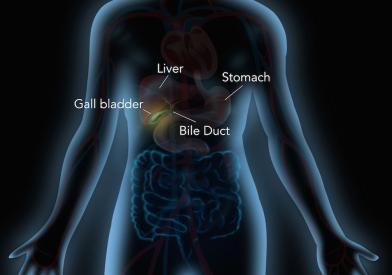What Is Biliary Cancer?
Biliary cancers are malignancies in the organs of the biliary system, which includes gallbladder and bile ducts. While gallbladder cancer and bile duct cancer are separate diseases, they are both part of the biliary drainage system and tend to be cancers that begin in glandular cells in tissue that lines the biliary tract.
Cancer of the bile ducts and the gallbladder are relatively uncommon: Roughly 10,000 Americans are diagnosed with cancer of the biliary tract each year, and unfortunately, most patients usually are not diagnosed until the cancer has advanced to the point where it has spread.
- Biliary tumors are sometimes discovered during imaging studies (MRI or a CT scan) for another condition, or for screening for familial cancers.
- Gallbladder cancer is associated with gallstones in more than two thirds of patients, and bile duct cancer can also be associated with other conditions such as Caroli's disease, ulcerative colitis, and cysts of the bile duct.
If you or a loved one has biliary cancer, the dedicated caregivers at the Pancreas and Biliary Tumor Center at Dana-Farber Brigham Cancer Center are here to help. Our internationally recognized team of experts works together to provide comprehensive, compassionate care and personalized treatment for each patient, utilizing the full range of therapies and services of Dana-Farber Brigham Cancer Center.
Incidence
Approximately 10,000 Americans are diagnosed with cancer of the biliary tract each year. The incidence of biliary tract cancer increases with age; the typical patient is between 50 and 70 years old. It is more common in Caucasians than in African-Americans.

Risk Factors and Management
The main risk factors for biliary cancer are:
- Primary sclerosing cholangitis (PSC), an inflammatory condition in the bile duct that is strongly associated with inflammatory bowel disease. Nearly 30 percent of biliary cancers are diagnosed in patients with PSC.
- If you have PSC, we will conduct an MRI of the bile duct and perform a specialized ERCT endoscopic procedure, in which suspicious areas are biopsied through small, sophisticated tools inserted through the mouth. If there is no evidence of cancer or blockages, you will likely be monitored.
- Biliary cysts: These cysts have about a 15 percent risk of becoming cancerous.
- Gallstones: Gallstones are present in 70 to 90 percent of patients with gallbladder cancer.
Other risk factors include:
- Biliary cysts
- Cirrhosis of the liver
- Fibropolycystic liver disease
- Congenital abnormalities of the biliary tree
- Hepatitis C virus infection
- Chronic disease of the biliary tree
- Parasitic infections of the liver and biliary tree
- Gallbladder polyps, chronic gallbladder inflammation, and gallstone disease (for gallbladder cancer)
- Toxic exposure: the radiologic contrast agent Thorotrast
- The genetic disorders Lynch syndrome and biliary papillomatosis
- Diabetes
- Obesity
- HIV infection


